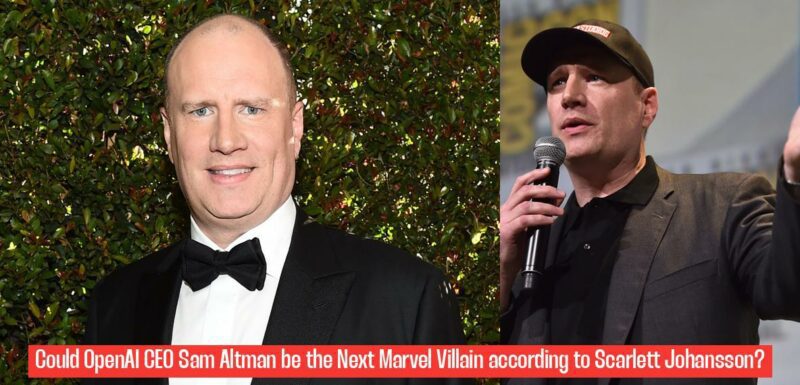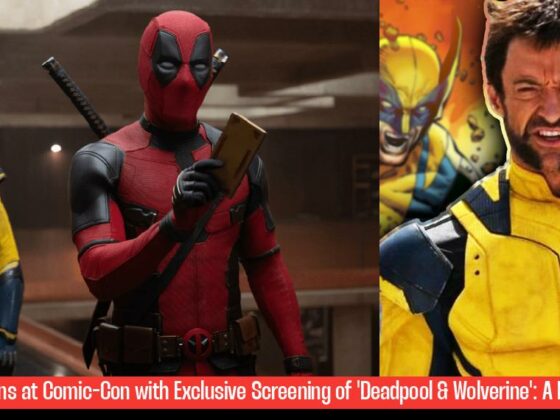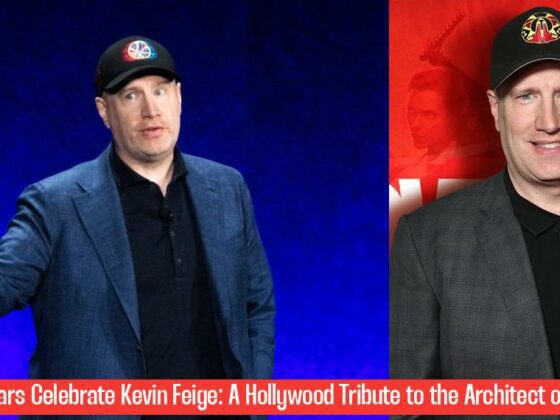Scarlett Johansson Thinks OpenAI CEO Sam Altman Would Make a “Good Marvel Villain”
Scarlett Johansson, the acclaimed actress known for her roles in films like “Black Widow” and “Her,” has stirred up a bit of controversy with her latest comments. While promoting her new film, Johansson made a playful suggestion that OpenAI CEO Sam Altman would make a rather interesting villain in the Marvel Cinematic Universe (MCU). This statement comes after a public feud between the two in May when Altman’s OpenAI allegedly used an imitation of Johansson’s voice for an AI virtual assistant in the 2013 film “Her.”
During an interview with The New York Times, Johansson, known for her sharp wit and comedic timing, was asked whether Altman would make a good Marvel villain. Her response was both surprising and amusing: “I guess he would – maybe with a robotic arm.” This comment, while delivered with a lighthearted tone, has sparked discussions among fans and critics alike.
Also read The Origins and History of Emeth the Iron Giant in One Piece: Unveiling the Colossal Figure
Johansson’s playful jab at Altman highlights a growing concern within the entertainment industry regarding the use of AI in filmmaking. The use of AI technology to mimic voice actors and even create entirely new characters raises questions about the future of the industry and the potential displacement of human talent.
While Johansson’s statement was made in jest, it also reveals a deeper sentiment about the power dynamics between human actors and AI technology. The idea of Altman, the head of a leading AI company, becoming a Marvel antagonist is a symbolic representation of the potential conflict between humans and technology in the future.
Whether Altman would actually be interested in a villainous role in the MCU remains a mystery. However, Johansson’s comment has undoubtedly added an intriguing layer to the ongoing conversation about the future of AI and its impact on the entertainment industry.
The “Her” Controversy and the Rise of AI
The controversy surrounding Johansson and OpenAI stems from the use of her voice in the film “Her.” While Johansson’s voice was originally used for the character of Samantha, an AI operating system, OpenAI allegedly used a synthetic version of her voice for a different AI assistant in the same film. This sparked a public debate about the ethics of using AI to mimic human voices and the potential for exploitation.
In the wake of this controversy, Johansson publicly criticized OpenAI for using her voice without her consent, highlighting the need for greater transparency and ethical considerations in the development and use of AI technology. While she has publicly stated that she doesn’t hold a grudge against OpenAI, her comment about Altman being a “good Marvel villain” reveals a lingering tension between the actress and the AI company.
Reading List: What Can Fans Expect from DC’s Expanded Presence and Lineup at SDCC 2024?
The “Her” controversy is not an isolated incident. The rapid advancement of AI technology has raised concerns about its potential to disrupt various industries, including entertainment. The ability to create realistic AI-generated content, such as voiceovers, music, and even visual effects, has led to discussions about the future of human creativity and the need for ethical frameworks to govern the development and use of AI.
The rise of AI technology is forcing the entertainment industry to confront a complex set of ethical and practical issues. While AI offers exciting possibilities for filmmakers, it also poses potential risks to human creatives. As AI becomes increasingly sophisticated and integrated into filmmaking, the industry must find a way to balance the benefits of AI with the need to protect the rights and livelihoods of human performers.
Johansson’s playful suggestion that Altman could be a “good Marvel villain” is a reminder of the evolving relationship between humans and AI in the entertainment industry. It is a relationship that is filled with both opportunities and challenges, and the future of the industry may depend on how these challenges are addressed.
The Future of AI in Entertainment
The use of AI in entertainment is rapidly evolving, and the future holds exciting possibilities. AI can be utilized to create more realistic and immersive experiences for audiences, and it has the potential to revolutionize the way we consume and experience entertainment.
AI can help filmmakers create more realistic and detailed environments, characters, and special effects. It can also be used to personalize the entertainment experience for individual viewers, tailoring content to their preferences and interests. AI-powered recommendation engines can help viewers discover new and exciting content, while AI-driven virtual assistants can provide personalized entertainment experiences.
Despite the potential benefits of AI in entertainment, it is essential to address the ethical concerns that surround its use. As AI becomes more sophisticated, it is crucial to ensure that its development and use are guided by ethical principles that protect human creators and performers.
The use of AI in entertainment is still in its early stages, and its long-term impact remains to be seen. However, one thing is clear: AI is poised to play an increasingly significant role in the entertainment industry, shaping the way we create, consume, and experience entertainment for years to come.
While Johansson’s comment about Altman being a potential Marvel villain may have been a lighthearted jab, it is a reminder of the evolving relationship between humans and AI in the entertainment industry. The future of entertainment may be shaped by the choices we make today regarding the responsible development and use of AI technology.
What playful suggestion did Scarlett Johansson make about OpenAI CEO Sam Altman?
Scarlett Johansson suggested that OpenAI CEO Sam Altman would make a good Marvel villain, especially with a robotic arm.
What sparked discussions among fans and critics following Scarlett Johansson’s comment about Sam Altman?
Scarlett Johansson’s playful jab at Sam Altman sparked discussions about the use of AI in filmmaking and the potential displacement of human talent in the entertainment industry.
What controversy surrounded Scarlett Johansson and OpenAI regarding the film “Her”?
The controversy arose when OpenAI allegedly used a synthetic version of Scarlett Johansson’s voice for a different AI assistant in the film “Her,” leading to a public debate about the ethics of using AI to mimic human voices.
What deeper sentiment did Scarlett Johansson’s comment about Sam Altman as a Marvel villain reveal?
Scarlett Johansson’s comment symbolically highlighted the potential conflict between humans and technology in the future, reflecting concerns about the power dynamics between human actors and AI technology in the entertainment industry.



